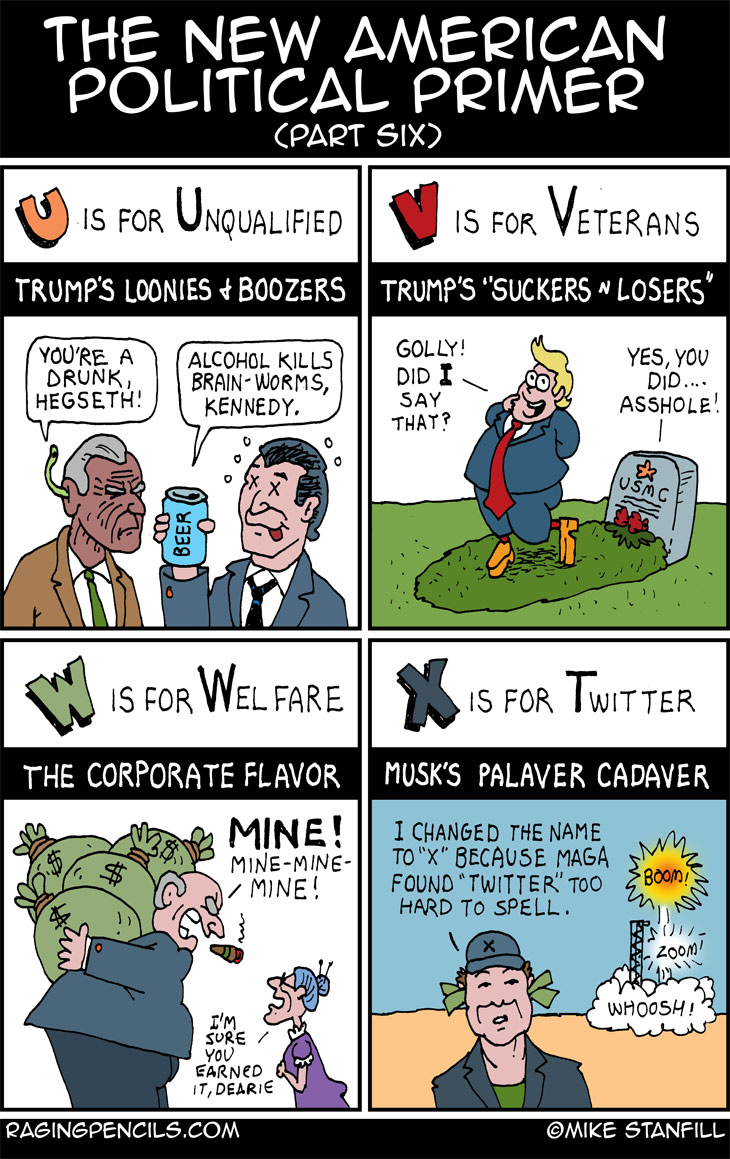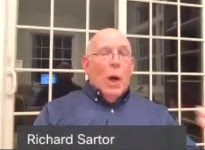Is the Charlestown Choo-choo crisis over?
By Will Collette
Since 2017, Charlestown has gone through periods of mass
hysteria driven by Charlestown Planning Commissar Ruth Platner and
fearmongering by the Charlestown Citizens Alliance (CCA). This hysteria has
been over the then implausible and now dead proposal by the Federal Rail
Administration (FRA) to build a new set of tracks in southern New England to
allow Amtrak’s Acela trains to operate at full speed between New York and
Boston.
The part of the FRA plan that so concerned Charlestown was
called the “Old Saybrook-Kenyon Bypass and was part of a much
larger and sadly overdue modernization of rail lines in the heavily travelled
Northeast Corridor.
When the plan surfaced, the CCA swung into action, largely
because they had ignored documents sent to the town from the FRA and were
embarrassed that they were, as the cliché goes, asleep at the switch. As former
CCA and Charlestown Town Council President Tom Gentz put it, “Who’s got time
to read this stuff?”
Connecticut and Rhode Island communities mobilized and in
short order, the FRA caved in, issuing a 2017 legally
binding Record of Decision ruling out the Old Saybrook-Kenyon Bypass
while calling for more planning. I believe even they realized the Bypass was a bad idea, plus they knew the project
wasn’t going to happen anyway.
Within a month of his 2017 inauguration, Donald Trump proposed cutting Amtrak’s budget by 13%, centered mostly
on halting new construction and long-distance subsidies. In 2017,
conservative Republicans controlled both houses of Congress and they weren’t
keen on Amtrak either.
Without funding or political support, no rail project
benefiting the blue states of the Northeast Corridor was going forward. The Old
Saybrook-Kenyon Bypass was dead on arrival.
 |
It only goes down hill and, of course, it burns coal
(Chris Morris) |
Don’t get me wrong: I thought the Kenyon Bypass was a bad
idea and, in an abundance of caution, some organizing was feasible. But I predicted the only way Trump and the
Republican-controlled Congress would move the Northeast Corridor work forward
was if Trump (or his kids) ended up owning Amtrak.
Even though the Kenyon Bypass died a quick and predictable
death, that didn’t stop Ruth Platner from trying to raise the alarm as if the
Bypass plan was going to rise from its grave. On three separate occasions –
in 2021, 2022 and 2024 – Platner tried to get Charlestown’s residents to
freak out like they did in 2017.
With absolutely no evidence, Ruth proclaimed "They're Back?" And so it has gone for the past
eight years. CLICK HERE for a detailing of Platner’s efforts to
fire up the town over the bogus Charlestown Choo-choo crisis.
Fast forward to today
So here we are in 2025. King Donald Trump is back, newly
crowned along with a die-hard MAGA Congress willing to do his bidding. The new
feature is the emergence of South African Nazi Elon Musk as our de facto
President.
So how does this affect Charlestown and the zombie
Charlestown Choo-Choo?
Amtrak will be lucky to survive this Trump term without
being sold off in whole or in part or being shut down.
 |
| AI art by Antonio Mavinga |
Trump hates trains. Even though he claims he rode the New
York subway in his youth – he called it “The Tunnel to Hell” - he just doesn’t
like them. Here’s how he described his train experience in an interview with NY Times reporter Maggie Haberman:
“TRUMP: It’s been a long time. It’s been a long
time. It has been. I know the subway system very well. I used to take it to
Kew-Forest School, in Forest Hills, when I lived in Queens. And I’d take the
subway to school. Seems a long time ago —"
In his first term, he proposed zeroing out federal funding
for the New York subway system. His animosity toward trains is heightened by
his predecessor Joe Biden’s unbridled love of trains. If Joe likes it, Donald
hates it, pure and simple.
As Trains.com
put it:
“Trump, meanwhile, has a vindictive streak a mile
wide. And he clearly wants to erase anything that has predecessor Joe Biden’s
fingerprints on it. Amtrak Joe’s signature achievement was the infrastructure
law that sent billions Amtrak’s way for new equipment, route expansion, and
Northeast Corridor improvement projects.”
Trump also doesn’t like high speed rail and has been
actively trying to pull all $4 billion in federal funding from California’s high-speed rail project. Trump said that California
doesn’t need a high-speed rail connection because, Trump claims, you can fly from San Francisco to Los Angeles
for only $2. Yes, that’s two dollars.
He said:
“We’re gonna start a big investigation on that
because it’s– I’ve never seen anything like it,” he said. “Nobody’s ever seen
anything like it. Nobody has ever seen anything like it. The worst overruns
that there have ever been in the history of our country. And it wasn’t even
necessary. I would have said, you don’t buy it. You take an airplane – it costs
you $2. It costs you nothing. You take an airplane. But this got started. And
if you have to, you drive, you can drive.”
As we know, King Donald has a hard time following the plot,
in this case, Amtrak’s goal to give travelers an alternative to driving.
Trump and Musk are determined to either destroy or privatize
federally-funded entities they don’t like (and that’s just about all
of them), whether it’s the Post Service, NOAA or Amtrak.
A Pittsburgh-Post Gazette editorial summed up what we
can expect in the near term:
“In Trump’s second term, with reality television
personality Sean Duffy serving as U.S. Secretary of Transportation, Amtrak’s
future feels less than secure. Feasibility studies to map new routes connecting
Pittsburgh and Chicago via Columbus and Fort Wayne may never happen.”
Obviously, the same fate applies to the on-going feasibility
study currently being undertaken to come up with options to improve Amtrak
connections between New York and Boston, including a future alternative to
the Kenyon Bypass.
On March 19, Amtrak CEO Stephen
Gardner resigned under pressure from Musk-Trump to accommodate the
administration’s plans for Amtrak’s future. According to President Musk, this
is the future as reported by The Hill:
“I think logically we should privatize anything that
can reasonably be privatized,” Musk said while speaking at the Morgan Stanley
conference on March 5, according to Newsweek. “I think we should privatize the Post
Office and Amtrak for example. … We should privatize everything we possibly
can.”
Amtrak CEO Gardner may have ended his career by releasing a five-page rebuttal titled “Proposals to Privatize Amtrak.” In that white paper, Amtrak listed its achievements and profitability. It also cited Great Britain's discovery that privatizing rail was not such a great idea:
“Proponents of privatization assert that it would
produce better service at a lower cost and reduce or even eliminate the need
for public funding…Great Britain’s recent renationalization of its rail service
after three disastrous decades of privatization, and past unsuccessful efforts
to privatize various Amtrak operations, show otherwise.”
It's also worth remembering that Amtrak came into being in
1971 because America's private rail companies collapsed, starting with
the New Haven Railroad's bankruptcy in 1961. However, when
logic and facts don’t matter, how can Amtrak resist Elon Musk’s chainsaw?
Since Platner’s first revival of the Charlestown Choo-Choo
Crisis, Town Council Deb Carney has diligently stayed in regular contact with
the RI Transportation Department to watch out for Charlestown’s interests in Amtrak’s
planning process. Nothing has arisen to raise any alarm.
Recently, Council President Carney, Town Administrator Jeff Allen and stakeholder Kim Coulter met with RIDOT to discuss a planned stakeholder meeting on the latest in the New Haven-Providence Amtrak study. Charlestown has been offered a place at the table.
Deb Carney says no date for this meeting has been set. Given the turmoil, lack of funding and Musk's crusade to dump Amtrak, there's a good chance that meeting will never take place.
So, is it time to call an end to the Crisis? Based on all the
above, I’d say yes. Except…
A far-fetched but plausible scenario
Both Donald Trump and Elon Musk are major fanboys of Russian
despot Vladimir Putin. Putin’s route to absolute power began when he allowed
Russian oligarchs to buy up Russian state assets for kopeks on the ruble after
the break-up of the Soviet Union. To use Musk’s words, Russia privatized
anything that can reasonably be privatized
These oligarchs made Putin a very rich and powerful man, at
the expense of Russian citizens. As Trump and Musk start selling off US assets
such as Amtrak, the Postal Service, et al., watch how they use the Russian
model to offer fire sale prices to American oligarchs in return for kickbacks.
Privatizing Amtrak will mean some oligarch will get to buy
it for cheap. They may have their own ideas about its future, but I’d expect
them to maximize profits by modernizing the system. Plus, they will expect that the federal government to foot the
bill.
Here’s how Trains.com
summed it up:
Put all this together and the inevitable conclusion
is that Amtrak as we know it will cease to exist. Long-distance trains will
disappear. State-sponsored routes will continue in some form, so long as the
states pick up the tab. And the Northeast Corridor will be raffled off to the
highest private bidder.
I can easily see Elon Musk as Amtrak’s highest bidder
followed by some flamboyant scheme to recreate the system as TrainX. As
in all Musk’s venture, he will use other people’s money, no doubt expecting
massive amounts of federal funding to turn his TrainX into a space-age system,
perhaps using mag-lev technology.
Note: there already is a TrainX, a private fitness center in California, but I'm sure Musk could convince them to sell their trademark. There is also a start-up maglev train company hoping to operate along the Northeast Corridor called Northeast Maglev.
Mag-Lev (magnetic levitation) is a technology that has
been on the cusp of commercial viability for quite some time – high-speed
monorails riding on waves of electromagnetic energy. China and Japan are
already well on their way to building inter-city mag-lev lines where trains can
run at up to 300 miles per hour.
The US is already funding Musk to build exploding SpaceX
rockets and Tesla cars and trucks that crash and burn, making Elon Musk one of the biggest
recipients of federal corporate welfare. If Musk “buys” Amtrak, he would expect
the taxpayers to pay for him to pursue his dreams.
If Musk or some other oligarch buys Amtrak and try out some
scheme to boost profits, they’re most likely to do it along the profitable
Northeast Corridor. Any improvements they make will involve major construction.
For instance, a mag-lev line would involve extensive new construction that
would cause major environmental effects.
But Musk and Trump are wiping out environmental regulations
that protect land, drinking water, farms, wildlife or human health and decimating
the staffs at EPA and Interior that enforce such rules.
They won’t care if they destroy historic Charlestown farms,
vital watersheds, forest land or wildlife habitats.
For now, these are my
theories about what might happen when Musk’s proposal to privatize Amtrak
happens. I can only speculate about what a future Amtrak owner will actually
do.
So now what?
In this article, I lay out what we know – Trump, Musk and
Congress will not approve or fund Amtrak’s Northeast Corridor plans – what is
reasonable to expect – Amtrak is likely going to go on the chopping block – and
what we can reasonably guess. Unless something changes in Washington politics,
Amtrak will be sold or closed. Some oligarch will be able to buy it for cheap.
The Trump Administration will almost certainly offer a new buyer
generous financial incentives and clear away any environmental obstacles to whatever
plans a new buyer might have for the system. The new buyer will, of course, be expected to give Trump a large back-hander.
But for now, the Northeast Corridor plan is dead.
For the past eight years, parts of northern Charlestown have
been at DefCon 1, thanks to alarmist and unsubstantiated rhetoric from Ruth Platner
and the CCA. Knowing what we know, we can reduce the alert level to Defcon 4 on
the Charlestown Choo-Choo. We should pay attention to what happens to Amtrak
but with a lot less anxiety.
In other words, no more Ruth Platner Charlestown Choo-Choo
false alarms.
























.webp)